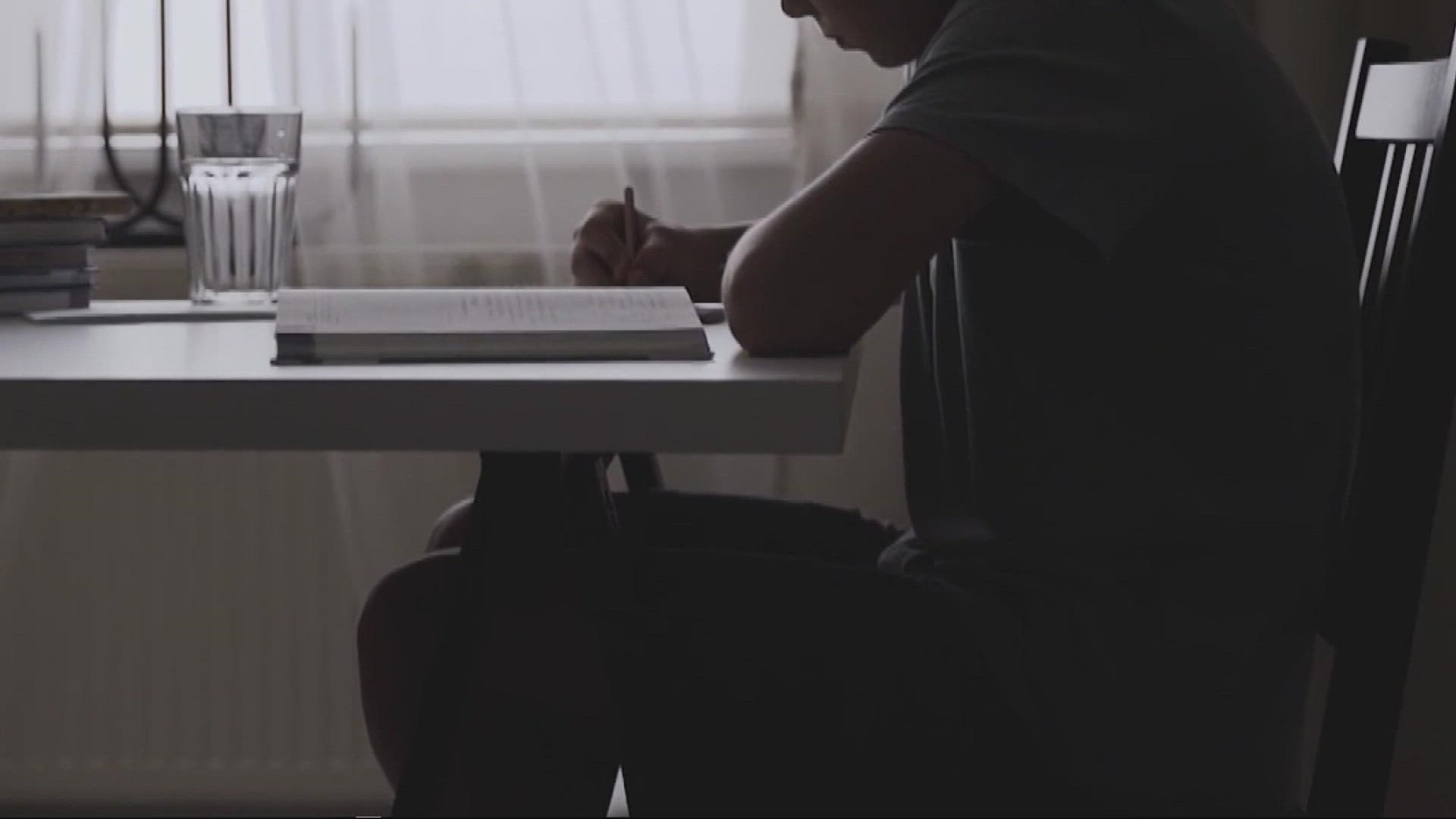PORTLAND, Ore. — The pandemic has increased the need for mental health resources among Oregon's children, but behavioral problems in schools have been growing even before COVID-19.
On Wednesday, KGW spoke with a pediatrician about what she’s seeing and what she says parents can do to help students who are struggling with mental health.
Dr. Lisa Denike is the regional chief of pediatrics for Kaiser Permanente Northwest. She said parents have a role to play when it comes to helping and supporting kids dealing with anxiety and other mental health issues.
“I'm seeing it every day that I live it in clinic. Kids who in the past may not have had struggled with school or with moods are suddenly having issues,” said Denike.
She said there were many children who had anxiety or feelings of sadness before COVID, but the pandemic caused an increase.
“We've seen a huge uptick in mood disorders with kids,” Denike said.
Denike said for many kids, going back to full-time in-person learning was a shock to the system after being home for two years.
That is Illustrated in a Blue Shield of California survey that showed that when students returned to school in the fall, 31% felt emotionally prepared to socialize in person, 20% felt they'd succeed in school and 28% felt they'd be able to focus on learning.
Overall uncertainty at school as well as some kids acting out can make the situation worse.
“I had a child just the other day, very concerned for her own safety in a classroom and she was grade school aged,” said Denike.
She said in general, younger kids she’s seen have told her they were anxious about not wearing a mask. They may have lost a family member to COVID or they’re worried about a family member becoming sick.
“The older kids, adolescents, they were stunted by not having two years to develop their persona outside of their family,” Denike said. “A lot of them are having anxiety about going back into school being around their peers.”
But the trend of students acting out started before the pandemic. Denike pointed out that the world has changed a lot for kids in the last five to 10 years.
“Most kids have the internet in their pocket now. Most parents are not monitoring what their kids are being exposed to. There's a lot of stressful, inappropriate content out there and I think that does drive some of this,” said Denike.
Parents have the internet at their fingertips as well.
“I also think that activity takes away from our true connectedness with our children. So that absence of that contact with your children makes a huge impact on their emotional and physical well-being,” Denike said.
Denike said parents have a role to play, to make a conscious decision, put the devices away and focus on their children.
“I think one of the most impactful things we can do for our children is to schedule regular one-on-one time with each of our kids.”
She said that one-on-one time can be a couple times a week for five to 10 minutes, where a parent puts all distractions aside to connect with their kids.
In addition, Denike said she's heard that lately the mental health system is so overwhelmed that there are often waitlists for care. She said she's heard because of the waitlists, parents have sometimes decided not to pursue mental health help.
"What I would say is don't give up. The earlier you can get them care, the better," said Denike. "And if you're on a waitlist now that's a month long, that's better than being on the waitlist two months from now, that's also a month long. So I encourage all of them [parents] to really start seeking that care as soon as they're concerned."

